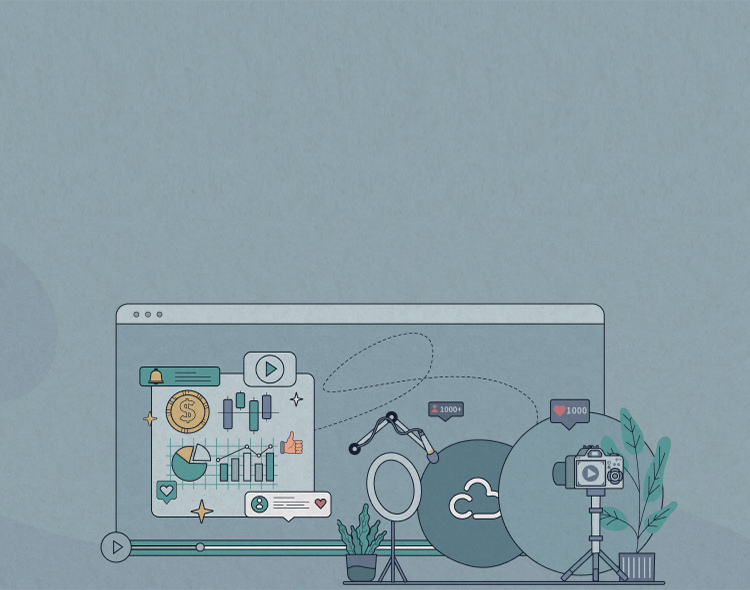The first few years of business creation are often considered the most difficult. But what happens after that? For many entrepreneurs, the next phase of growth faces many new challenges.
Businesses need to be ready to respond quickly to a variety of new challenges. Many organisations have had to rapidly change their operating models to be remotely connected to their employees and customers, quickly citing agility and resilience as important elements. Entrepreneurs need to take all factors into account when planning for the future, taking a close look at how they operate and interact with customers, from finance to supply chain.
Overall, according to the Frost & Sullivan study, entrepreneurs should focus on the following three areas to take their businesses to the next level.
01
Unify systems and automate processes
There are three common growth mechanisms: adding new product lines, opening new subsidiaries and expanding into new markets. But all of these initiatives add operational complexity. Once your business reaches a particular stage, it will be difficult to cope with the increased complexity without a unified system. Complexity is the natural enemy of business growth - if organisations need to invest a lot of time in non-essential, low-value manual tasks (such as data collection and input), it wastes staff time and leads to more errors. Often, start-ups can easily add new systems and applications as needed during the start-up phase, thus minimising investment and saving money and time. But this approach doesn't take future needs into account and can result in applications that don't work together, which increases operational and customer acquisition costs. The result is often that organisations have many disparate systems that are loosely connected and poorly integrated with each other, resulting in the need to be extra careful with every upgrade or tuning. To solve this problem, it is important to deploy systems that provide a centralised view of information. This avoids manual work. It's also important to streamline business processes that are supported by IT systems-in fact, a Frost & Sullivan study found that 67% of organisations consider their core software to be important or very important to success.
02
Improve visibility and information accessibility
As organisational structures become more complex, multiple disparate systems can also make it difficult to access information across the organisation. Sales reps need to use timely information to fully leverage the value of customer interactions, customer service agents need to use timely, relevant customer data to provide exceptional service when resolving issues, and marketing teams need to use customer data to optimise campaigns and achieve the greatest possible benefits. This data includes customer purchase history, lifetime value, campaign performance, and sales aggregation, etc. Frost & Sullivan surveys show that the number one reason unsuccessful organisations cite as a reason for failure is the difficulty of engaging customers. Another important area for sales-based businesses (or those that rely on physical goods) is supply chain visibility. The new crown epidemic has brought attention to the vulnerabilities in complex global supply chains, and organisations in Asia Pacific and Japan have to deal with the challenges of multi-language, multi-currency and multi-jurisdictionality. You may not be able to solve the challenges of a global trading network, but it is important to ensure that your business processes are as efficient as possible to avoid stock shortages or order fulfilment issues. For example, be able to integrate multiple subsidiaries within a single platform. A comprehensive view of financial performance, often through real-time reports or dashboards, is also important for executives looking to expand their business quickly, including margins, revenue figures and cash flow. Without the necessary information, operations become a guessing game. frost & Sullivan asked entrepreneurs what they would do if the time was right, and the most frequent response (22 per cent) was to reform dysfunctional aspects of the business more quickly. In the early days of a business, it's easy to get a sense of what's going on-especially with a small number of employees. But as the business grows and enters new markets, it becomes increasingly difficult to stay on top of the situation, especially when adding new technology without a clear strategic plan.
03
Create an engaging omnichannel customer experience
Attracting and retaining customers is critical to business success. More than half (56 per cent) of Asia-Pacific and Japanese business owners surveyed by Frost & Sullivan said they measure business success through customer satisfaction. However, the way customers interact has changed, especially in the 2020s, with many retailers being forced to close their offline brick-and-mortar shops. As a result, it has become important to reinvent the customer experience through flexible omni-channel solutions that drive sales by directing people to all the channels that matter, including online, in-store, social media and third-party platforms. As customers have moved online, elements of the shop experience have shifted to other parts of the customer journey. Delivery, returns, packing and customer support are now just as important as the level of service provided by the salesperson at the retail counter. However, whilst you have complete control over the shop experience, e-commerce businesses rely on third parties. So how should companies redefine the customer experience for the new era?FarmpalTechlogi Improving customer segmentationFirst, improve customer information. ‘With available data, we can identify which customer segment has the most daily orders.’ KaranHon, co-founder of FarmpalTechlogi, an Indian agri startup, says, ‘The second benefit we gained was that we could increase our prices, helping the company to keep margins high. This was made possible by the data and analyses we had during closed management. We then realised that we should focus on the customers who really need us and who support the viability of our business.’
By analysing data, preferably enterprise-wide, entrepreneurs can identify customer buying habits and customer trends (such as the recent spike in homeware sales) that can help boost sales or profitability. Subsequently, they can create personalised experiences to meet customers' unique needs; they can increase sales automation, add better delivery options, or offer new e-commerce tools with digital payments or pay-as-you-buy functionality, such as Shopify, Alipay and Afterpay.
As your business continues to move forward, Hitpoint Cloud wants to be your partner, with Oracle NetSuite's powerful automated processes, real-time data-driven decision support, flexible scalability, cost optimisation, excellent user experience, and powerful feature modules, helping your business to improve efficiency, reduce costs, optimise operations, and compete globally to Staying Upstream. At the same time, Oracle NetSuite's built-in compliance management tools and data security will protect enterprises and ensure sound development.
-
Digital Transformation Guide
2025/04/16【Cloud Goods Sharing】Revenue Management: The Intelligent Engine of Business Profitability
-
NetSuite News
2025/04/10Oracle NetSuite Version 2025.1 Professional Analysis: What are the Important Changes Brought by this Update?
-
Digital Transformation Guide
2025/04/02【Cloud Goods Sharing】 Accounts Receivable and Accounts Payable: The Balancing Act in Corporate Finance
-
Digital Transformation Guide
2025/03/26【Cloud Goods Sharing】 Serialised Inventory Tracking: How to Improve Operational Efficiency and Accuracy















